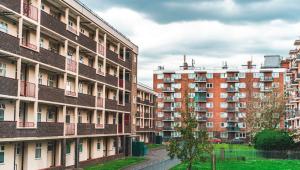These ‘homes’ were often on unused land earmarked for development, small and overcrowded, and in areas of antisocial behaviour, the Children’s Commissioner for England said, in a report released today.
Commissioner Anne Longfield said: “Children have told us of the disruptive and at times frightening impact this can have on their lives.”
She added: “Something has gone very wrong with our housing system”. The Bleak houses report explains that the housing crisis in England has made housing unaffordable for many families, which has led to an “explosion in the proportion of homelessness cases”.
The commissioner calls on the government to invest “properly” in housebuilding so there are more affordable homes and less homeless families. It also called on local authorities to safeguard children, which they must do under section 11 of the Children Act, and place them in more suitable accommodation.
The report found latest official figures showed 124,000 children living in temporary accommodation in England – 80% more than there were in 2010. Bleak houses called for the government to come up with a target to reduce the number of children in temporary accommodation.
As well as shipping containers, children were found housed in converted office blocks or B&Bs, sometimes for months or even years.
In 2017, about four in 10 children in temporary accommodation had been there for at least six months, and one in 20 had been there for at least a year.
The commissioner also estimated there were a further 92,000 homeless children in England ‘sofa surfing’.
Longfield said: “It is a scandal that a country as prosperous as ours is leaving tens of thousands of families in temporary accommodation for long periods of time, or to sofa surf.”
Author of the report, senior policy analyst at the commissioner’s office Simone Vibert, warned an estimated 375,000 children were in households that have fallen behind on their rent or mortgage payments, and said frontline staff “need greater training” to spot the early signs of homelessness.
Tom Beattie, vice chair of the District Councils’ Network, said local authorities were approached by more than 20,000 homeless people in the run-up to last Christmas.
He called on the government to end the freeze on local housing allowance, scrap permitted development rights and allow councils to keep 100% of right to buy receipts so they could invest the money in new homes.
“In light of today’s report, we openly call on the government to consider the wider causes of homelessness, and to provide councils with the flexibilities we need to enable us to prevent it happening in the first place,” he said.










